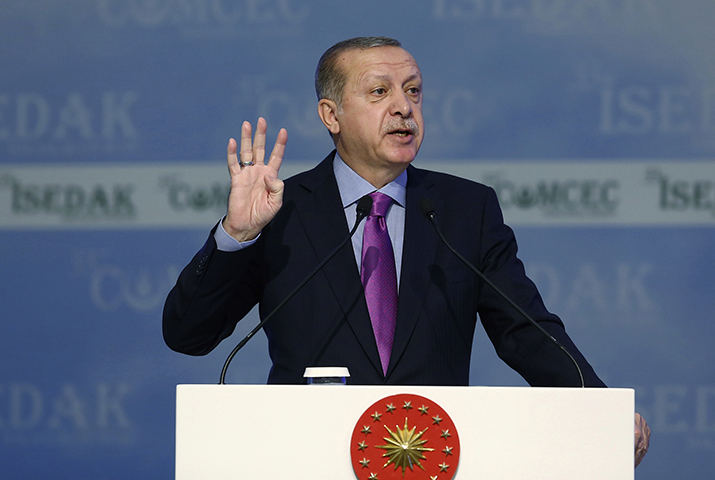Journalists sentenced
An Ankara court on November 22 sentenced Ayşenur Parıldak, a former court reporter for the shuttered daily Zaman, seven years and six months in prison for “being a member of an armed terrorist organization,” the online newspaper Diken reported.
The journalist has repeatedly denied the charge. “My only crime is having worked at the Zaman newspaper. I wish I hadn’t,” she said during the sentencing hearing.
Parıldak has appealed the court’s verdict. She will remain in prison during the appeal process, Diken reported.
—
An Istanbul court on November 21 sentenced Oğuz Güven, online chief editor for the opposition daily Cumhuriyet, to three years and one month in prison for “making propaganda in support of a [terrorist] organization” and “publishing the statements of a [terrorist] organization,” his employer reported.
The charges relate to a post from Cumhuriyet‘s Twitter account in May about the death of a state prosecutor in a traffic accident. The prosecutor was responsible for indicting suspected followers of exiled preacher Fetullah Gülen on terrorism charges in the wake of the failed attempted coup in June 2016. The tweet was deleted after 55 seconds, according to Cumhuriyet.
Güven’s lawyers will appeal the verdict, Cumhuriyet reported.
Journalist released
A Turkish court in the eastern Van region on November 21 released Selman Keleş, a photojournalist who was detained in March after photographing a regional municipality building, the daily Evrensel reported.
The court also released Arif Aslan, a municipality employee who was being tried alongside Keleş, according to Evrensel.
Their trial is due to resume on February 22, 2018.
Journalists on trial
Şahin Alpay, former columnist for the shuttered daily Zaman, said in a letter that his health has continued to deteriorate in prison and restated his innocence.
The 73-year old journalist wrote in the letter, published on November 21 by the Turkish press freedom group P24, that he suffers from ailments including a herniated disk, sleep apnea, and hypertension.
Alpay has been in detention since July 26, 2017, on charges of being a member of a terrorist organization, CPJ has documented.
According to records of the arraignment hearing on August 1, 2016, which CPJ reviewed, the state alleged that Alpay and three other journalists wrote articles in Zaman praising exiled preacher Fethullah Gülen, whom the Turkish government accuses of maintaining a terrorist organization, and that the newspaper was the group’s media organ.
In the letter, Alpay asked authorities to release him on medical grounds.
—
The trial against Nedim Türfent, a reporter for the pro-Kurdish Dicle News Agency, resumed on November 17, despite all of the prosecution witnesses withdrawing their testimonies and telling the court that they testified under torture and threats from the police against a journalist they did not know, the online newspaper Gazete Karınca reported.
During the first, second, and third hearings of the trial, 17 witnesses who submitted testimonies against Türfent withdrew their statements, and said they originally signed the testimonies because police threatened them, according to reports.
President threatens press
President Recep Tayyip Erdoğan called journalists elitists and said that they are the “enemies of the people,” during a speech in the northeast city of Bayburt on November 19.
According to online newspaper Demokrat Haber, the president said, “We will not be silent when a handful of enemies of the people, who have a hold on newspaper columns, have secured their places on television screens [and] have taken the world of culture and arts hostage, are exploiting the common values of our people.”
Erdoğan has made incendiary comments about journalists in the past. In September, he said that most of the imprisoned journalists in Turkey are terrorists and criminals, CPJ documented at the time.
CPJ research shows that Turkey is the world’s worst jailers of journalists and media workers, and frequently imprisons journalists on anti-state charges in retaliation for their work.
